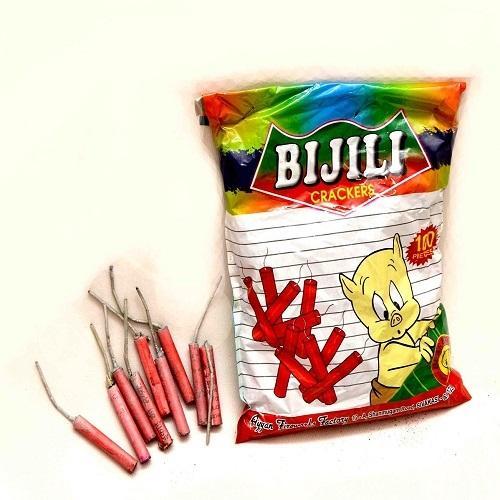During the last month, my heart was broken twice when I heard two kids with incredible appetite for Math say, “I don’t like Math”. I have heard adults say that to me and it always made me wonder, “Boy, what kind of monster was their teacher”. To see this happening to kids in real time is torturous. I see that these teachers are not monsters but in earnest trying to do what they are “supposed” to do and causing almost irrevocable damage to the kids.
A true story 🔗
New clothes. (Fire)Crackers. Sweets. Crackers. Crisps. Crackers. The festival of lights was very special to this kid. He would bicycle around and wish strangers “Happy Deepavali” and they would wish him back. Rain was always around the corner and it was the deciding authority on the amount of fun most kids had on any Deepavali day.

The memories. His grandfather, lighting a “Bijili - a small, not very dangerous, not very loud, not very expensive” cracker and throwing it in the air to see it burst, against the wishes of his mother. One of those crackers fell into his brand new shirt pocket and burst to make a nice round black hole in the shirt and a nice round black burn on his chest.

Or even earlier, not willing to accept that “cracker time” is over, when he took a couple of "Buzz Vanam - the sparkling flower pot"s into a closed, low ceiling room, where there were oil lamps to light them up and narrowly avoiding being blinded for life.
Yeah, Deepavali was special. On that particular Deepavali day, he was a bit down as all his “bursting” crackers were done. All that remained were “Chattai - the sparkling string/whip” and the infamous flower pots that were reserved for night time brilliance. His friends down the street weren’t done though, he could hear “Lakshmi Vedi - a few levels up from the Bijili in terms of noise and cost” or the “Double Shots - the ones that burst, fly up and burst again”.

He was also disappointed and angry as one of his Lakshmi Vedis turned out to be a flop, as it was missing the fuse. That was one less bang that his friends could have heard. Unable to shake off the heaviness, he took the Lakshmi Vedi in his hand and loitered.
Then it came to him. He ran inside in excitement, picked up the Chattai, cut to measure and inserted inside the “Lakshmi Vedi” until it touched the very bottom. He waited in excitement. The sparkling string, unlike the fuse wire was built for splendor, so it took its own time. After what seemed like an eternity, the spark traveled inside and finally “Boop” went the Lakshmi Vedi. Not as loud as the other ones, not as bad as the Bijili either.

But the loudness didn’t matter, his friends were not even in his mind. The idea worked.
“I saw you do it”.
In all his excitement to pick up the Chattai, he had woken up his dad. “It was a good idea”, his dad said and then went back to sleep.
This was the best Deepavali ever.
A fictional short 🔗

This is a story I read as a kid in a Tamil magazine. Unfortunately, I don’t remember the author or the title of the story or the magazine I read it from. Kudos to them - their story survived, influenced and is now being retold.
Ray thought he was smart. He thought he was handsome. But he didn’t have to think, he knew he was in love. The girl? Someone he worked with. He had been meaning to ask her out or at the very least, make her take notice that he existed. Time rolled by and it was already six months and he had made no progress.
It was October, it was the month of Deepavali. He decided that this was his time. He was going to try every day to get her attention. He overheard her speak to her friends that she wasn’t going home for the celebrations as there was a death in the family. Maybe, maybe, even ask her to celebrate Deepavali with him.
One week passed and he couldn’t muster the courage to even pass by her desk. As he sat at his desk, defeated, cursing himself for being a coward, he heard a voice, “Can someone tell me where the calculator is?”. It was her. This was his chance. He jumped up.
“What do you need to do?”.
“Oh! I am doing my month end report and I need to tally some large numbers. I am already a week late and I don’t want to make a mistake.”
“Just bring it over. I will help you”. He said, while he slowly hid the calculator inside the file folder and closed it.
She brought the report over. He took his paper and pencil and as he put his fantastic ability for mathematics and the confidence from the accolades he got from his teachers for his systemic way of working and mental arithmetic to good use and multiplied large numbers quickly on a worksheet and finished it under 5 minutes while the girl of his dreams, his soul mate, watched over his shoulder.
He got up with a triumphant smile on his face and handed it over to her. He nervously looked up seeking to see the look of admiration in her face. Her attention was elsewhere. On his closed file folder.
“Oh, there is the calculator. You know, you could have done it a lot faster if you had used it”, she said.
“Could you please hand it over? I don’t want to make mistakes”, she looked at him pitifully and then left.
What does this all have to do with Mathematics 🔗
The above story, while predictable, captures the reality of primary and middle school mathematics. It focuses on the rote, penalizes mistakes and fails to reward that which is truly mathematics. Thinking in patterns. Developing an intuition for the abstractions. Seeing the generic in the specifics. The fuse in the sparkling string.
Instead of inspiring the children to love the language of Mathematics that helps us understand everything around us, the curriculum and the educators are instilling fear, doubt, indifference and dispassion.
The beautiful mystery of mathematics reduced to misery by two mnemonics 🔗
Yes, the much talked about in recent times BODMAS and PEMDAS. The curious thing about these mnemonics are that D and M have the same precedence and so do A and S. The mnemonics even have a different order. You even need to explain the mnemonic. Instead of it being a made up mnemonic to avoid mistakes it has become a tool for teaching and assessments. I wish the mnemonic that history handed over was PTFP - Put the fricking parentheses.
Laying out unclear rules, making minefields to watch the students trip and say “Aha, you didn’t pay attention in class” is a good way to collect a pay check. Precedence is an important concept to understand. It is not an important concept to memorize and get assessed. There are more important topics to cover. There are more ideas to explore and uncover.
If there are a string of numbers with operators interspersed between and no parentheses, it was a work of a sloppy human being. We hope that you will never come across such a human. But if you do, here is a chart that tells you where to put the parentheses. Or, as Ray’s dream girl said, “Use the calculator. Its faster”. That’s about all the attention this topic needs. If a 10 year old works through multiple “problems” on this, spending an hour of their time, a little kitten in their head that says “math is lovely” dies.
This is a solved problem 🔗
There are wonderful people talking about mathematical education across the world. As a math educator, if you are not paying attention to this, incorporate these methods into your repertoire, you are doing a disservice to all your students.
At Puthir, unencumbered by a syllabus or assessments, we have the luxury of taking this much farther. The most important result we got out of it is kids enjoying Math without any incentives. Unfortunately, Puthir is not (yet) a school and we can’t control what happens elsewhere.
I wish that all teachers, especially the ones concerning mathematics take an oath every day, “I shall not do anything to make my students lose their love for learning”. Like the kid on his best Deepavali, students get the most out of having an opportunity to try things out, see it work and hearing someone tell them that it was a good idea.
